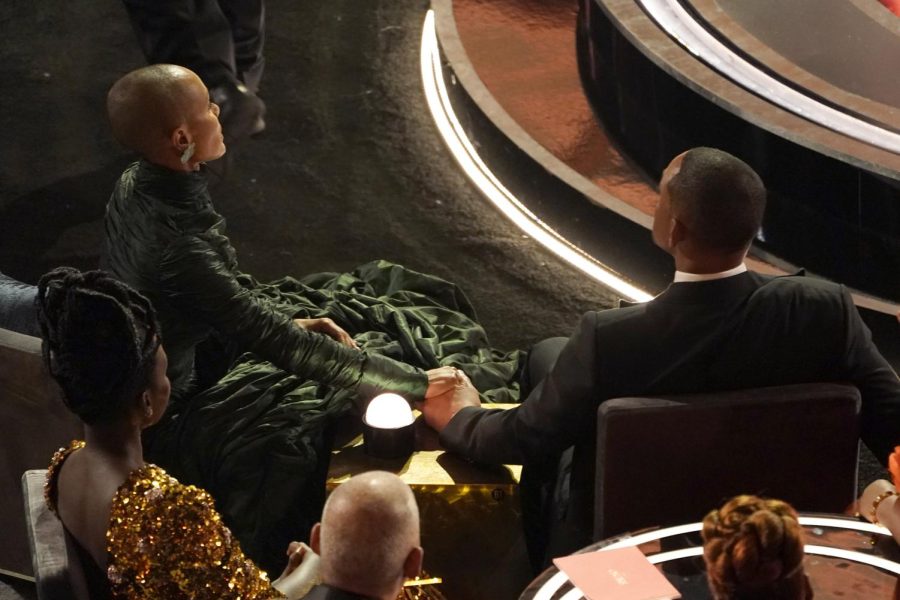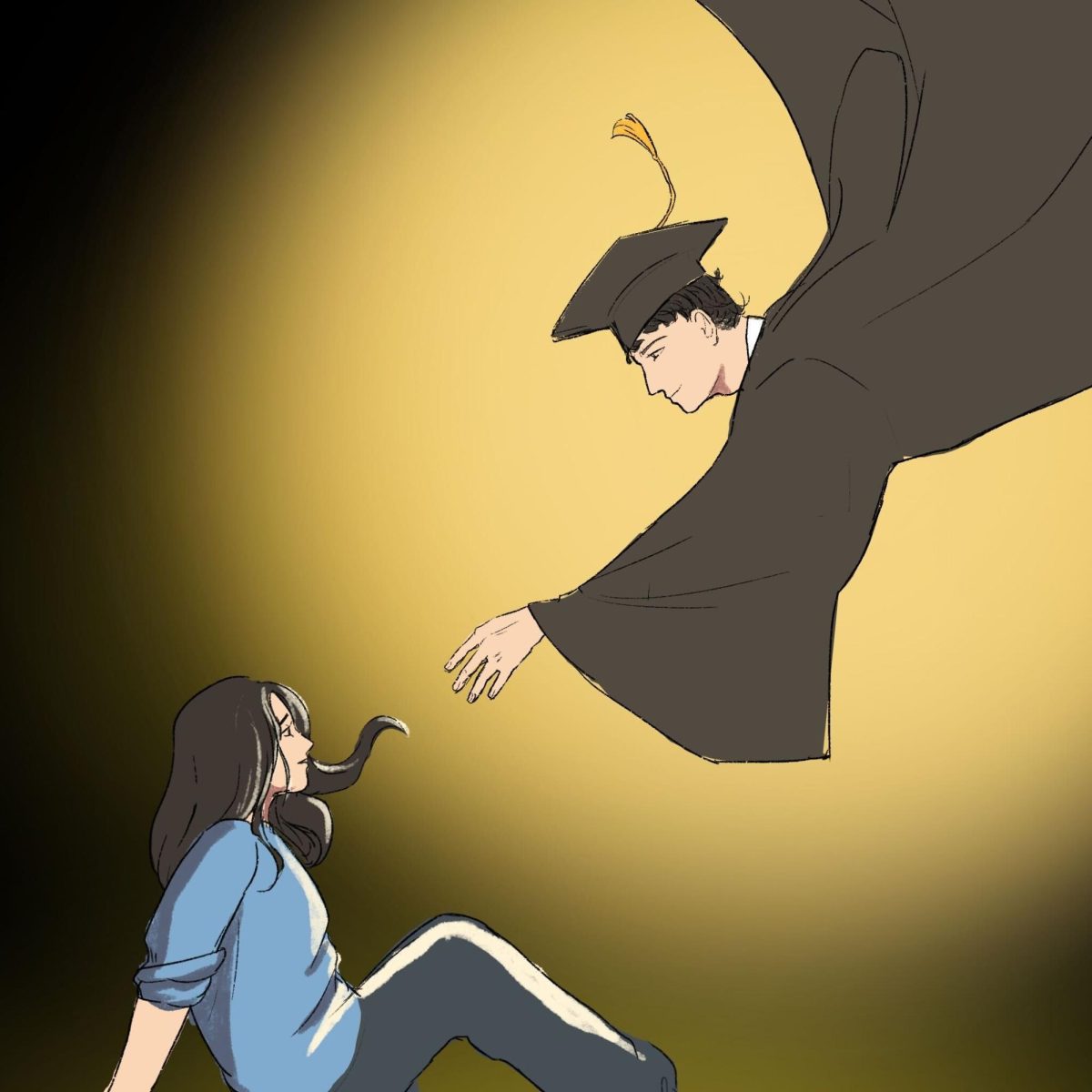Opinion | Will Smith did the right thing
Jada Pinkett Smith, left, and Will Smith hold hands in the audience at the Oscars on March 27, 2022, at the Dolby Theatre in Los Angeles.
April 6, 2022
The best form of comedic expression, in my opinion, is jokes about misery — it’s an art form that brings light to deeper issues. But comedy can also be controversial.
There aren’t any precise rules that dictate what a good joke is or when the right time to tell one is. Sometimes comedians get it wrong, such as Chris Rock’s GI Jane joke about Jada Pinkett Smith at the 2022 Oscars last week.
Rock deserved backlash after the distasteful joke — maybe not as harsh as a slap in the face on one of the most anticipated annual events in Hollywood, but definitely a prompt condemnation of some kind. The joke wasn’t funny or acceptable because it crossed lines into misogynoir and ableism.
This joke poked fun at Pinkett Smith’s hair, and after years of “anti-Black hair sentiment” shrouding society, some people still continue to discriminate against natural hair. Women of color have constantly abided by unreasonable beauty standards which often disenfranchise their appearance.
Misogynoir — a term coined by Moya Bailey, an assistant professor at Northeastern University — describes the discrimination of Black women. It describes the subordinate treatment of women of color in the U.S. that persists in all facets of life. Seeing the context of this joke makes it so much more offensive.
The case of Chastity Jones, a Black woman from Alabama, comes to mind regarding this issue. Jones’ interviewers for a new job claimed that her dreadlocks “tend to get messy” and violate company grooming policy — leading them to ultimately rescind the job offer.
The Equal Employment Opportunity Commission brought up a lawsuit, but the 11th Circuit Court of Appeals dismissed Jones’ case. The court ruled that banning an employee from wearing their hair in dreadlocks isn’t racial discrimination — a decision deeply rooted in prejudice, one that puts women of color down for wearing their hair naturally or in cultural styles.
Rock made an unwarranted joke about a Black woman’s appearance at her expense, in order to incite a laugh out of a majority white audience at the Oscars. This is misogynoir. Allowing this joke to slide could further enable existing stereotypes and discrimination, especially on such a prominent international stage.
The joke gets worse when we learn that Pinkett Smith’s choice of hair was a result of an autoimmune disease — alopecia. Alopecia is not a life-threatening disease, but it can throw someone’s life, particularly their self-esteem, into disarray. Dealing with such a disease is daunting and Pinkett Smith probably went through a lot when coming to terms with her condition.
An autoimmune disease forces one to come to terms with their own mortality as body systems start failing that they’ve spent years keeping healthy. Imagine waking up one day to your own cells attacking your body because of a rare mutation in your genetic code — and there’s nothing you can do to fix it. Alopecia in particular has a very obvious outwardly manifestation, unlike other autoimmune diseases, which makes it difficult to hide.
As a public figure, Pinkett Smith could have made great attempts to hide her disease from the world, but was brave enough to share her struggles with the world. This disease has definitely changed Pinkett Smith’s and her family’s pace of life as they adapt to the physical and emotional demands of the disease. To have all this effort and struggle be disrespected for the sake of a joke must have been disheartening.
The root of ableism is the discrediting and at times complete ignorance of the hardships that someone is forced to go through just because of who they are — all for a bad joke. Allowing this joke to be tolerated would perpetuate notions of apathy toward people with medical conditions and disabilities.
Will Smith did the right thing standing up against this joke by intervening, even if it was physical. Smith admitted that violence was not the right way to respond, but I think the swift and firm condemnation he gave was necessary to set a precedent for what we should and shouldn’t joke about. If not for the outburst on a global stage, I think we wouldn’t have had a chance to reflect on the implications of jokes that degrade people because of their identity and medical condition.
Smith may have been penalized for his conduct at the Oscars — and has surely received criticism for it — but I firmly believe that the principle behind his actions was warranted. In some sense, Will is still the Fresh Prince, a character navigating through a society ingrained with prejudices, even if it means getting into trouble for it.
Harsh Hiwase writes about ethics and his favorite show is “The Fresh Prince of Bel-Air.” Write to him at [email protected].









